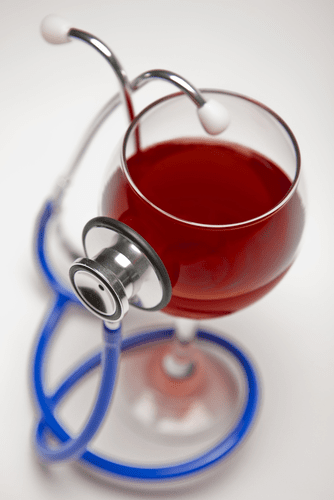Researchers evaluated the failure to consider future consequences as a significant risk factor for aggression (Bushman et al., 2012) In this study, 495 social drinkers were assigned to a group that consumed alcohol or a placebo group. They were also required to respond to the Consideration of Future Consequence Scale (CFC). It was found that those scoring lower became significantly more aggressive than those who had higher ratings on the CFC. The findings were explained by emphasizing that concern for the future involves greater prefrontal cortex resources that help inhibit the excessive impact of alcohol. Identifying those factors that might contribute to heightened anger when consuming alcohol is important for individuals who have anger issues and those who treat them. Increasingly, research offers answers to determine this interaction.
The individuals who had higher mental rigidity had lower empathy and perception of the severity of IPV. Additionally, they reported higher alcohol use and hostile sexism than those lower in mental rigidity. Many people enjoy alcoholic drinks as a way of relaxing, sometimes to reduce the tension of socializing or to quiet an overactive mind. By contrast, some individuals’ alcohol consumption contributes to their anger, hostility, and even aggression. In his case, he was already predisposed to anger arousal before he had his first drink. No matter your drink of choice, alcohol can easily be abused and often is, especially when it’s used to self-medicate.
Anger Management Techniques
Anger might characterize depression for men so often in part because of long-standing social norms around emotional expression and vulnerability. Some experts consider anger attacks a unique presentation of anger with depression. But a constant simmer of anger that lacks a clear cause can suggest a more complex underlying cause, such as depression.

Experts don’t know for certain why some people experience anger with depression and others don’t. They do recognize, though, that anger happens more commonly for some people than others. According to research from 2011 and 2019, anger attacks aren’t just common with depression. They can also affect your behavior toward others and quality of life. Hostile feelings can also lead to guilt, another emotion common with depression.
Alcoholism Resources
Alcohol use is defined by an individual’s behavior surrounding their consumption of alcohol. This can include habits developed, actions taken, and consequences ignored while drinking. http://ishodniki.ru/art/os/vista/806.html Some individuals may consider alcohol’s effects to be more of a stimulant, meaning that after a drink or two, they loosen up and are ready to go out, socialize, or relax.

The benefits soon wear off and the drinking becomes part of a routine. If you go on drinking, your speech starts to slur, you become unsteady on your feet and may start to say and do things that are out character, which you may regret when you are sober. Although younger people still drink https://8women.ru/ljubov-i-otnoshenija/6381-uchenye-postavili-pod-somnenie-polzu-afrodiziakov.html more than other age groups, fewer people are now starting to drink at a younger age4. Give now through Nov. 28th to double your impact on the future of healthcare. A lack of impulse control can make a person unable to resist the sudden, forceful urge to fly into a rage or act aggressively.
Medical Professionals
For his part, Levine believes his PND was exacerbated by not fully comprehending just how tough parenting could be, or what was normal newborn behaviour. He didn’t realise that many infants simply wake frequently, or cry a lot. “Sometimes [men] show what we call a ‘masked male depressive presentation’, that looks a bit different than typically the way we think about depression,” says Singley. “There might be a tendency to somaticise”, or feel physical symptoms instead of emotional ones, like stomach pains or migraines. Treatment, particularly a combination of psychotherapy and medications, has been shown to be effective for older adults. However, not all medications or therapies will be right for everyone.
- Individuals with alcohol dependence may drink partly to reduce or avoid withdrawal symptoms.
- Admittedly, it’s hard to surrender the need to be right in favor of love and compromise.
- If you are worried by the idea of stopping or cutting down your drinking, or if you just can’t cut down, it might help to talk with a specialist alcohol worker.
- When treating depression and substance abuse, consult with a mental health professional and/or an addiction specialist who can provide resources and recommendations for possible treatment options.
Others might begin feeling depressed or anxious after just one drink. At the same time, people with depression may attempt to self-medicate with alcohol. If you or someone you care about has a co-occurring disorder, know that help is available. By engaging in a professional treatment program, you can begin the path to happier, healthier, and sober living and learn improved coping skills so you can live a drug- and alcohol-free life.
Helping depression and stopping drinking
It can be tempting to drink if you’re feeling unhappy, but there’s a better solution out there. When treating depression and substance abuse, consult with a mental health professional and/or an addiction specialist http://alcatraz-club.ru/novostyi/index.php/cat04/1897-iskusstvo-bunta-greatest-hits-ot-pink who can provide resources and recommendations for possible treatment options. Major depressive disorder involves persistent and prolonged symptoms, but depression, in general, takes on many different forms.
- “Men don’t talk about their feelings, right? We’re supposed to be the rock for our spouses. I didn’t have anybody to talk to about this. And I genuinely felt that if I told her, she would leave me. And my wife is a wonderful person.”
- But these programs do not address only addiction – they also often offer counseling services to talk through your issues with anger.
- Joining a support group or a 12-step program such as Alcoholics Anonymous may help.
- Emotional regulation skills and relapse prevention tools are also taught.
- This research was supported by a National Institute on Alcohol Abuse and Alcoholism at the National Institutes of Health grant (R01 AA17603) to the first author.
